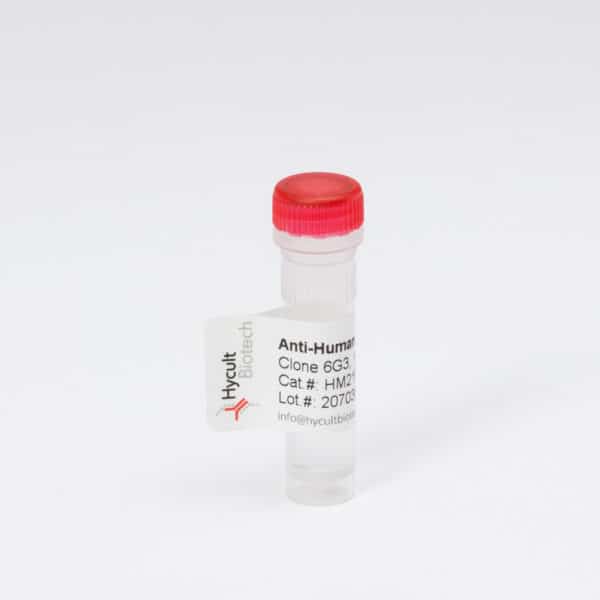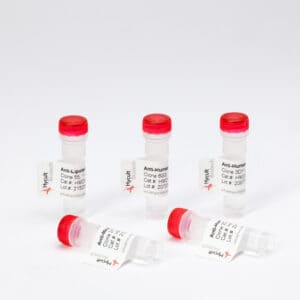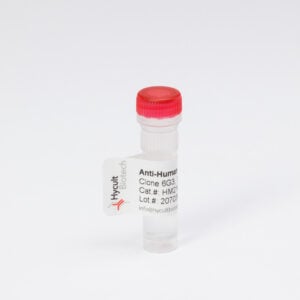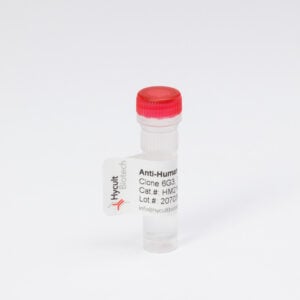MBL-A, Mouse, mAb 2B4
€133.00 – €414.00
Mannose Binding Lectin (MBL) also called mannose- or mannan-binding protein (MBP) is a member of the group of collectins. MBL is an oligomeric lectin that recognizes carbohydrates as mannose and N-acetylglucosamine on pathogens. MBL contains a cysteine rich, a collagen like and a carbohydrate recognition domain. It forms a complex with C1r/C1s like serine proteases designated MASPs that proteolytically cleave C4, C2 and C3. MBL is able to activate the complement pathway independent of the classical and alternative complement activation pathways. The MBL-MASP pathway (better known as the lectin pathway) is antibody and C1q-independent. MBL exhibits complement-dependent antibacterial activity and acts directly as an opsonic and therefore plays an important role in innate immunity. MBL is synthesized by hepatocytes and has been isolated from the liver or serum of several vertebrate species. Only one form of human MBL has been characterized, while two forms are found in rhesus monkeys, rabbits, rats and mice. The mouse forms are known as MBL-A and MBL-C. The MBL-C concentrations in serum are about 6-fold compared to that of MBL-A. MBL-A, but not MBL-C was found to be an acute phase protein in casein and LPS-injection models. MBL-C exists in higher oligomeric forms than MBL-A. The monoclonal antibody 2B4 is a calcium-dependent antibody.





